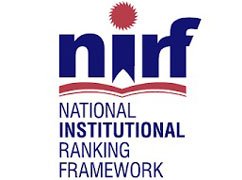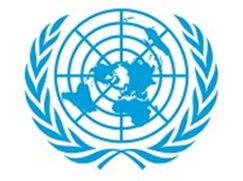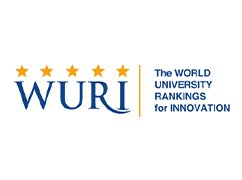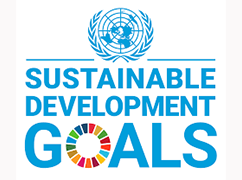
The Communication and Media, Psychology is a dual major undergraduate programme aimed at equipping students with skills, knowledge, and attitude that enable them to aspire for leadership roles in the domain of media and communication. The Psychology courses introduce students to the fundamental processes underlying human behavior and familiarize them with a few emerging fields and branches of psychology.
In the first semester, ‘Introduction to Mass Communication’ has been designed to help students understand the definition of communication, its different forms, its varied conceptions, practices, and scope.
The Communication and Media, Psychology is a dual major undergraduate programme aimed at equipping students with skills, knowledge, and attitude that enable them to aspire for leadership roles in the domain of media and communication. The Psychology courses introduce students to the fundamental processes underlying human behavior and familiarize them with a few emerging fields and branches of psychology.
In the first semester, ‘Introduction to Mass Communication’ has been designed to help students understand the definition of communication, its different forms, its varied conceptions, practices, and scope. ‘Critical thinking’, a skill enhancement course, is aimed at introducing the students to different aspects of critical thinking, its methods and processes and go on to provide a platform for practice.
In the second semester, the core course on ‘Print Media Production’ will introduce students to the basic computer skills needed for print media, reporting and editing, along with basics of page layout, graphic design. The other key aim is to enable the student to pick up effective reporting, interviewing and editing skills meant for the print media. The skill enhancement course for the second semester ‘Strategic Storytelling’ hopes to enable the students to move beyond automated execution of media roles and responsibilities and creatively make an effective difference.
‘Broadcast Media’ is a core course in the third semester, which will provide students with hands-on training in producing and editing broadcast programmes. This course will help students get an insider’s view of radio and television media and introduce them to scriptwriting and anchoring. The skill enhancement course for the semester – ‘Software for Media’ - will teach them the various aspects of design.
A course on ‘Social Media’, will introduce the students to the fast-emerging domain and equip them to understand the medium, its dynamics and produce media content for varied audience groups. ‘Reading Cinema’ is a skill enhancement course where the domain of cinema as an important media of communication would be analysed. The course will have screenings and interaction with members from the industry and enable stimulating discussions and learning. The learning from the ‘Strategic Storytelling’ and the ‘Broadcast Media’ courses will be utilized for interpreting films from a narrative and film-making perspective.
At the end of the second year, students will be required to do an internship in either print/radio/television/cinema/ social media and provide a detailed report of the same under a prescribed format.
In the fifth semester, students would be doing an elective course on ‘Advertising’ wherein they would learn the process of advertising, copywriting, client servicing, and brand building, etc., across traditional and non-traditional media. The other elective would be Public Relations. Depending upon their interests, students can choose the one of their choice.
In the sixth semester, Media Research is introduced as a core course. Students would pick up research skills and go on to do a working paper on any of the key media issues. For the discipline specific-electives, this semester offers Mass Communication, Culture and Ethics as one choice and Mass Communication and Rights as the other choice. The electives are aimed at strengthening the theoretical base of the students in the domain of media and communication.
Applicants may apply online for the programme from 8th December 2023 on the University website till the date of applications officially closing.
Applications for each programme will close approximately a week before the scheduled selection process.
All applicants must visit the page: https://appstat.christuniversity.in and register by entering NAME (as printed on Class 10 Marks Card), EMAIL-ID and set a password. (The email id and mobile number provided will be used for sending confirmation and application status-update messages). An applicant can apply for as many programmes using the same ID as long as the prescribed eligibility criteria for the specific programme is fulfilled.
Note:
Note: The International Student category fee structure is binding for the full duration of the programme and cannot be transferred /changed in between.
Candidates from the above listed categories having pursued Indian Educational qualification and who may have applied under the Indian States Category will have to pay the International Student Category Fee. The decision of the Admission committee is final.
Candidates seeking admission through International Student category (Foreign Nationals/PIO/OCI) will have a separate application process, with the following options to apply for any programme at Christ University.
Online Application form
Email ID for any clarifications: isc.admission@christuniversity.in
Students are welcome to apply under the Non Resident Indian category for the programmes offered by the University.
Students who fall under any of the following classifications can apply under NRI Student category and be liable to pay the fees applicable to the category for the entire duration of the programme.
Admission to all programmes is based on academic achievement and CHRIST (Deemed to be University) Selection Process. Candidates should submit the final results of class 12 on or before August 30th of the admission year.
Applicants must read through the Selection process, Fee Structure and other details under the preferred programme given on our website before proceeding with the application process.
Selection process results will be available on https://espro.christuniversity.in/Application/ according to the important dates section. Selected candidates will receive an E-Offer of admission that will be valid up to the date mentioned in the Offer of admission.
All selected candidates must note that admission is provisional and subject to University rules.
Selected candidates must download the offer of admission on the ‘Application Status’ link on the University website.
Selected applicants must download the E-Admission Card and be personally present at the Office of Admissions of the selected campus with all original marks cards and one set of photocopies to be submitted for verification at the time of admission. Parents (at least one parent) are requested to accompany the student for the admission process
An undertaking for pending original documents unavailable currently [applicable only for candidates writing/passing their exam in March – June – 2024], must be submitted to the Office of Admissions. These documents must be submitted on or before 30 August 2024.
All admitted students must open an account at South Indian Bank, CHRIST (Deemed to be University) Branch as part of the admission process and must carry relevant ID proof (Aadhar Card and Pan Card).
The University ID card is a smart card, which is both an ID cum ATM card with a chip containing the student personal details. All transactions within the University campus after the commencement of classes, including fee payment, will be processed only through this card. It is also an access card for Library and other restricted places.
Selected candidates who fall under International student category (ISC) should register with the Foreigner Regional Registration Officer (FRRO / FRO) of the Local Police in Bengaluru, India within 14 working days from the date of admission or arriving in Bengaluru.
Eligibility for the programme is a pass at the +2 level (Karnataka PUC / ISC / CBSE / NIOS / State Boards) in any stream (Humanities, Social Sciences, Commerce & Management, Sciences) from any recognised Board in India.
Year | # Karnataka | Other Indian States | NRI | SAARC / AFRICA / PIO / OCI / ASEAN | Other Foreign Nationals | Time of Payment |
|---|---|---|---|---|---|---|
1 | 90,000 INR | 110,000 INR | 171,000 INR | 2,500 USD | 3,000 USD | Within seven days of declaration of the Selection Process Result |
2 | 90,000 INR | 110,000 INR | 171,000 INR | 2,500 USD | 3,000 USD | On or before March 15, 2023 |
| 3 | 90,000 INR | 110,000 INR | 171,000 INR | 2,500 USD | 3,000 USD | On or before March 15, 2024 |
# The fee for Karnataka domicile students, as indicated in the table, is the actual fee payable and excludes the scholarship amount.
It is to be noted that though the fee is fixed for four years, there may be a periodic nominal increase to meet the rise in costs.
(The above condition is not applicable to NRI and candidates applied under NRI Category).
Process | Particulars | Date | Mode |
Entrance Test (ET) | CHRIST (Deemed to be University) Entrance Test Refer Entrance Test Details page for more information | As per E Admit Card | Online |
Micro Presentation (MP) & Personal Interview (PI) | MP – Candidate should be able to talk for 90seconds on a topic given by the panel. Duration: 10 minutes | As per E Admit Card | Online |
Academic Performance | Scanned copies of the class 10, class 11/12 marks card should be uploaded while filling the application. * If class 12 marks are not available at the time of applying, then marks of any test conducted during class 11 can be uploaded. The office of admissions will verify the scorecards. *Applications with no scorecards or not clear scanned copies will be rejected and termed as Not Eligible | ||
E-Admit card will be generated as per the important dates mentioned in the website | |||
| Important Instructions
|
By the end of the programme students should be able to:
PO1. Academic expertise:
PO2. Critical Thinking:
PO3. Effective Communication:
PO4. Social Interaction:
PO5. Effective Citizenship:
PO6. Ethics:
PO7. Environment and Sustainability:
PO8. Self-directed and Life-long Learning:
By the end of the Communication and Media, Psychology bachelor’s programme students will be able to:
Address
Dharmaram College Post, Hosur Road, Bengaluru – 560029, Karnataka, India
Telephone
+91 804012 9100 / 9600
Send us a Fax
40129000
Mail Us At
mail@christuniversity.in







